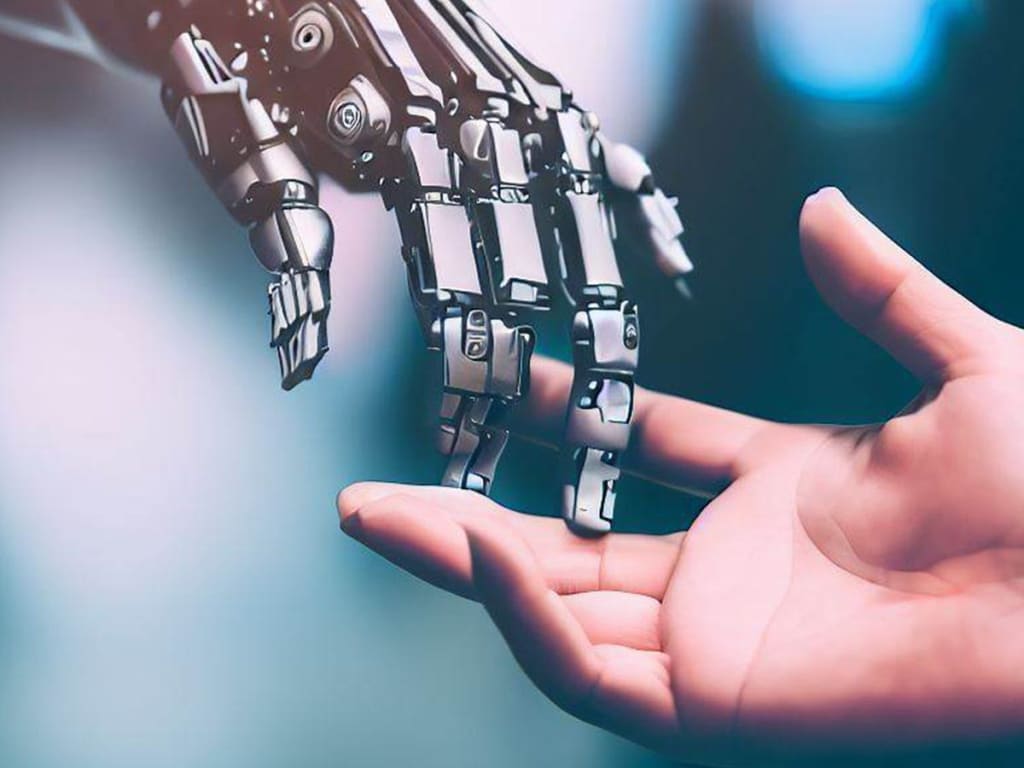Artificial intelligence
"Unleashing the Power of AI: Exploring Subtitle Generation and Beyond"

art writing...Title: The Transformative Power of Artificial Intelligence: A Journey into the Future
In the realm of technological advancement, few innovations have captured our imagination and potential as profoundly as Artificial Intelligence (AI). With its ability to replicate human-like cognitive functions, AI has rapidly moved from science fiction to reality, redefining industries and reshaping the way we interact with the world.
**Understanding AI**
At its core, AI refers to the simulation of human intelligence in machines. It involves creating algorithms that enable computers to perform tasks that typically require human intelligence, such as problem-solving, learning, reasoning, and decision-making. AI can be broadly categorized into narrow or weak AI, which is designed to perform a specific task, and general or strong AI, which possesses human-like cognitive abilities.
**AI Applications**
The real-world applications of AI are staggering. In healthcare, AI algorithms can analyze medical images to detect diseases with remarkable accuracy. In finance, AI-powered algorithms can predict market trends and optimize trading strategies. In transportation, self-driving cars are a prime example of AI revolutionizing an entire industry. Additionally, AI-driven virtual assistants, like Siri and Google Assistant, have seamlessly integrated into our daily lives, simplifying tasks and providing instant information.
**Natural Language Processing (NLP)**
One of the most exciting developments in AI is Natural Language Processing (NLP). NLP enables computers to understand, interpret, and generate human language. This breakthrough has led to chatbots that can carry out conversations, language translation tools that bridge communication gaps, and sentiment analysis that gauges public opinion. NLP has immense potential in customer service, content creation, and data analysis.
**Machine Learning**
At the heart of AI lies Machine Learning (ML), a subset that empowers systems to learn from data and improve their performance over time. Supervised, unsupervised, and reinforcement learning are common ML approaches. Supervised learning involves training a model on labeled data, enabling it to make predictions or classifications. Unsupervised learning involves finding patterns in unlabeled data. Reinforcement learning, akin to how humans learn through trial and error, involves training a model to make a sequence of decisions to maximize rewards.
**Ethical Considerations**
The rapid advancement of AI has brought ethical considerations to the forefront. Concerns range from job displacement due to automation to biases embedded in algorithms. Ensuring fairness, transparency, and accountability in AI systems is crucial. Developers and policymakers must collaborate to establish guidelines that mitigate these risks and ensure AI benefits all of society.
**Future Possibilities**
The future of AI holds exciting possibilities. Quantum computing could propel AI capabilities to unprecedented heights by solving complex problems at speeds currently unimaginable. Additionally, the convergence of AI with other technologies like the Internet of Things (IoT) could lead to a truly interconnected world, where devices communicate and collaborate autonomously.
**Education and Workforce**
As AI continues to transform industries, the need for a skilled workforce adept in AI-related skills is growing. Educational institutions and training programs are evolving to equip individuals with the necessary knowledge to develop, implement, and manage AI systems. Continuous learning and adaptability are becoming essential in the rapidly evolving technological landscape.
**Conclusion**
The journey of AI from theoretical concept to practical reality has been a remarkable one. With each innovation and breakthrough, the boundaries of what AI can achieve continue to expand. From healthcare to entertainment, finance to transportation, AI's impact is felt across sectors, reshaping the way we live and work. However, as we embrace the potential of AI, it's crucial to navigate its development with ethical considerations at the forefront.
As we stand on the cusp of the AI revolution, the key lies in harnessing this technology to create a more efficient, interconnected, and equitable world. While challenges exist, the possibilities are boundless, and the transformative power of AI promises to shape the future in ways we're only beginning to comprehend.





Comments
There are no comments for this story
Be the first to respond and start the conversation.